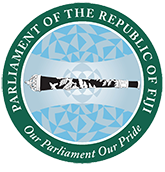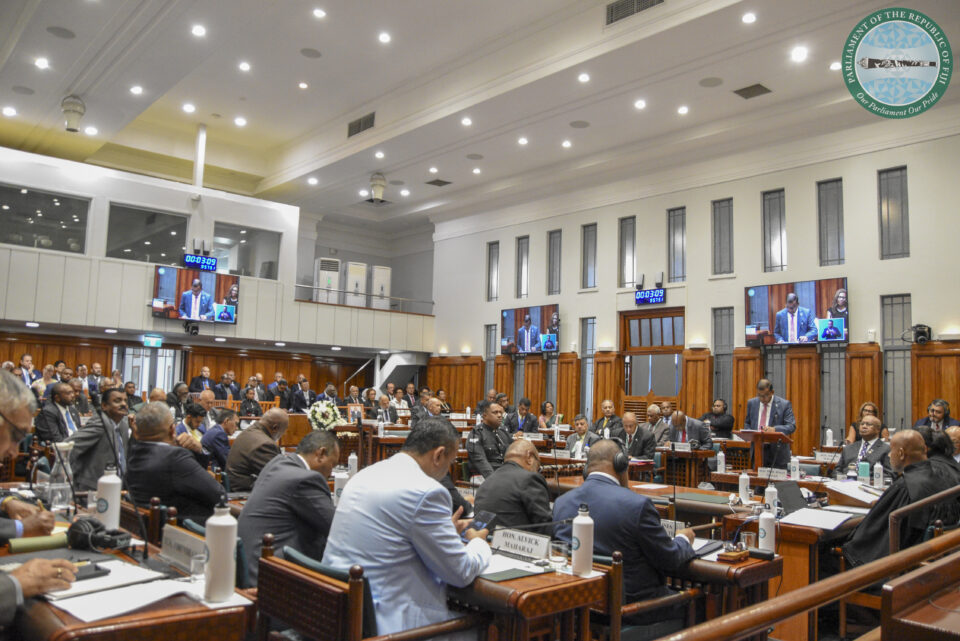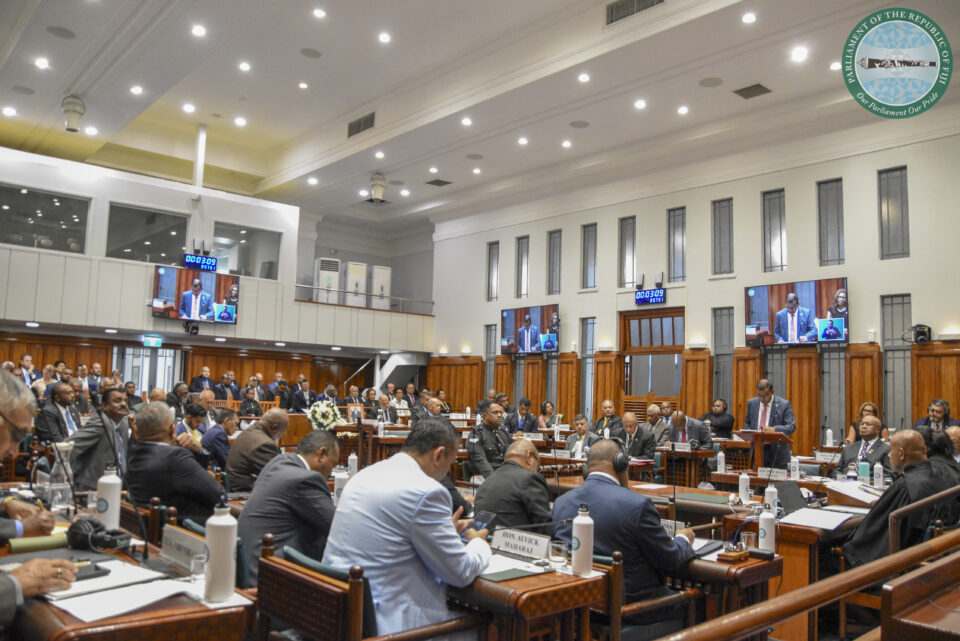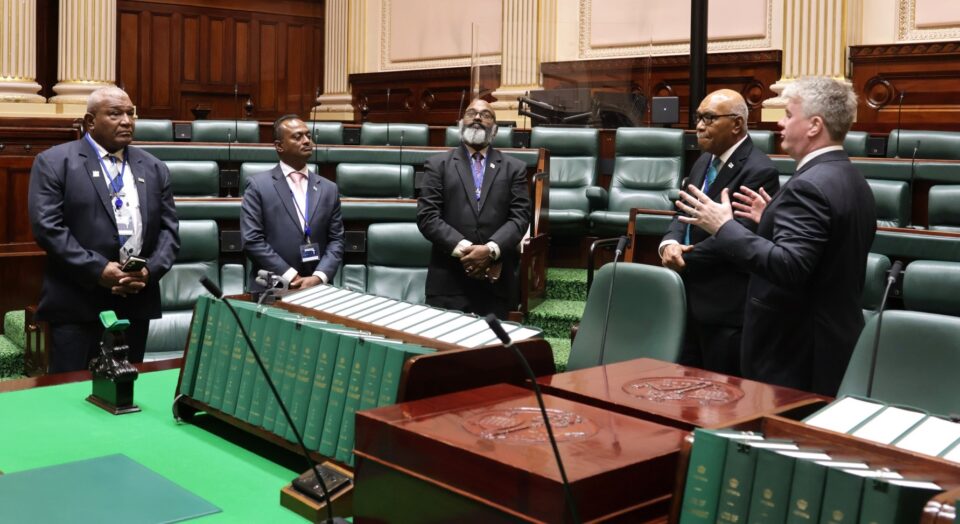Project to strengthen legislature in six Pacific Island Countries
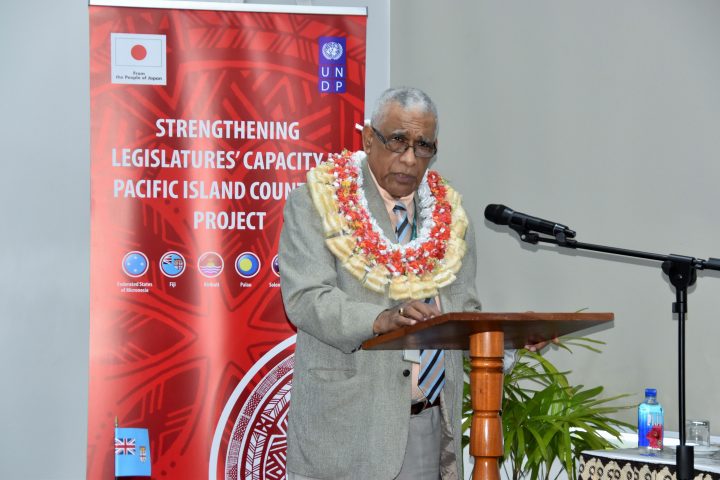
A project to assist six Parliaments in the Pacific will begin its second phase soon following the signing of the project document between the UNDP Pacific Office and the Government of Japan in the Fiji Parliament today.
Speaker Hon. Ratu Naiqama Lalabalavu while welcoming guests at the signing, acknowledged the support from the UNDP Pacific Office and the Government of Japan for the new funding agreement for ‘Strengthening Legislatures in the Pacific Island Countries’ (SLIP) Phase II.
“On behalf of the beneficiary parliaments of Fiji, Federated States of Micronesia, Kiribati, Palau, Solomon Islands and Vanuatu, acknowledge with sincere appreciation and thanks, the kind and generous support of the Government of Japan,” the Hon. Speaker said.
He added that continuation of the support reflected Japan’s long-standing interest and desire to support parliamentary democracy and good governance amongst small island countries.
“I also wish to acknowledge the UNDP Pacific Office for its significant presence and leadership towards the strengthening of small island legislatures in the region over the years. I thank the new Resident Representative and her team, and her predecessors who have contributed towards this valuable initiative,” Hon. Ratu Naiqama said.
After the opening of Parliament last month, the Hon. Speaker noted that it is important to allow the Members of Parliament (MPs), particularly the new and young members to develop their skills and competency to deal with some of the pressing development and law-making issues at the parliamentary level.
“The SLIP project essentially supports the Parliaments to become more effective and efficient through the enhancing of committees, legislative processes and building capacity and competency of MPs and staff.”
“I take note that the project also aims to strengthen the competency and capacity of MPs and staff through peer-to-peer exchanges, capacity-building workshops at the national and regional level, as well as develop regional networks and cooperation mechanisms between legislatures,” the Speaker said.
The project also aims to strengthen the representation role of Parliament through contribution to outreach and citizen engagement activities and the engagement with the 2030 Agenda and the Sustainable Development Goals (SDGs).
“This is very important particularly for our Pacific Island communities where understanding of the role of Parliament and parliamentary literacy may be lacking. It is important for us to be able to take parliament down to the grassroots communities. More importantly we have to make parliament’s services accessible to all our citizens irrespective of where they are or their literacy levels.”
“Parliaments have a central role in the implementation of the SDGs, by ensuring that development policies, legislation and implementation are drawn up through a participatory and inclusive process,” Hon. Speaker added.
His Excellency Fumihiro Kawakami, the Ambassador of Japan to Fiji said Japan is firmly committed to supporting the development of the Pacific region.
“We believe that strengthening the capacities of legislative bodies is critical to achieving sustainable development. We are pleased to renew our partnership with UNDP on this important project, and we look forward to working together with the legislatures and people of the Pacific to achieve our common goals.”
Ms Dawn Del Rio, UNDP Pacific Office in Fiji Resident Representative a.i. said that this project is a significant step towards achieving more inclusive and democratic governance in the Pacific region.
“Legislatures play a critical role in ensuring that the voices of citizens are heard that public resources are allocated fairly and transparently, and that policies are aligned with the needs of the people. We are proud to partner with Japan on this important initiative, and we are committed to working with the governments and people of the Pacific to achieve our shared vision for sustainable development, ensuring gender equality and prioritizing marginalized groups in society.”
The project will start in April 2023, and is expected to run for four years with a budget of US$ 6 million.
-Ends-

